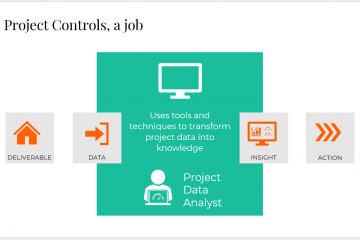
This article is a reflection on the use of FIDIC contracts in combination with civil law legal systems.
Introduction on FIDIC contracts and their origin
FIDIC contracts are the most used international form of contracts for construction and industrial projects. The popularity of FIDIC contracts was derived from their international acceptance. On top of that, they are universally used by the World Bank and other multilateral development banks for the global projects that they fund.
The first FIDIC edition was published back in 1957. It was inspired by the Institute for Civil Engineers (ICE) contracts that were based on the English laws and the construction industry practice in the United Kingdom.
FIDIC Contracts and civil law
Despite of being widely used in many countries across Europe and the Middle East – where civil laws govern – contract specialists think that only few “internationalizations” of FIDIC contract are required and hence the domestic English laws are still prevailing in its clauses.
We have seen, on many occasions, that FIDIC clauses, initially derived from English law, are now being interpreted in different ways leading to unexpected outcomes when applied in the Middle East, like in Egypt or in the United Arab Emirates. The civil codes of these countries override the FIDIC contracts causing some disputes.
The global use of FIDIC contracts across jurisdictions and legal systems has become a challenge. Disputes may arise because of the contradiction between the country’s governing law and the FIDIC standard forms. This may happen when foreign contractors enter new markets where they lack the sufficient knowledge of the governing laws.
Deviations and amendments of FIDIC in civil law – a word of caution
Deviations and amendments to FIDIC contracts – for better adaptation to the country’s governing law – are often required. Appropriate additions and deletions should be done to standard FIDIC Clauses to take the country’s governing law into consideration. A contract that does not consider the local laws may pave the way for a disaster.
On the other hand, FIDIC deviations and amendments may be of little effect where the country’s laws are mandatory. For example, in Sub-Clause 17.6 of FIDIC Red Book (1999), it is clearly stated that the liability of the Contractor to the Employer – in accordance with the Contract, and except for certain conditions – “shall not exceed the sum stated in the Particular Conditions or (if a sum is not so stated) the Accepted Contract Amount”.
Under this Sub-Clause of FIDIC Red Book, the Contractor is led to believe that its liability to the Employer is somehow limited. However, in many countries where civil laws govern, the Contractor is liable to compensate the Employer for a period of 10 years from the date of project handover in the case where the building shows defects that threaten safety and stability (known as decennial liability). These are strict liabilities in spite of pre-existing sub-surface conditions on the Site or when the Employer had agreed on the defect when taking-over. As these are mandatory laws, applicable in countries like the UAE, there is no room for a FIDIC-based contract to remove these liabilities or shorten the period.
Conclusions and suggested approach on FIDIC in civil law
FIDIC standard forms have become the preferred choice for both Employers and Contractors in many countries. Yet, with civil law legal system, it is necessary to recheck certain clauses that might suit more the English law. This, to ensure a smooth execution of projects and minimize the legal risks. Parties shall request some legal and contract advice to ensure that their contracts comply with the local laws.
At AfiTaC, we consider that international consultants can prepare and manage the FIDIC contracts on a day-to-day basis. In parallel, local lawyers should be consulted with very specific questions to obtain a legal opinion. This approach maximizes efficiency for the Employer or Contractor by combining FIDIC practitioner knowledge with deep knowledge of the laws of the country.
About AfiTaC
AfiTaC.com is the blog on commercial and contractual subjects for the Project Businesses (Construction, Infrastructure, Oil & Gas, Power & Renewable, Water Supply & Sanitation, etc). Its objective is to stimulate reflection, learning, convergence to balanced contracts and positive dispute resolution. You can subscribe to our newsletter by writing to “newsletter@afitac.com”. You can also connect to our LinkedIn page. Engagement with the readers is what keeps us going. So, don’t hesitate to exchange with us by commenting here below, liking our publication on LinkedIn and writing to us “info@afitac.com”.


0 Comments